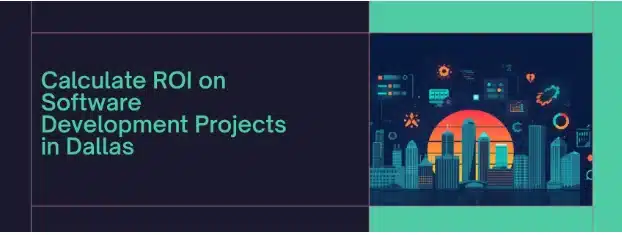Many factors influence how much energy you use and how much you can save with solar. Some of these factors include local electricity rates, your power usage, and the size of your solar system. Your solar savings also depend on the amount of excess energy your solar panels send to the utility grid and net metering policies in your area.
- Costs
While solar energy is a long-term investment that may take years to pay off, it can save homeowners significant money over the lifetime of their system. The total savings can vary depending on several factors, including the sunlight a home gets, its location, and how much electricity is used. Another factor that can impact how much does solar save is your purchase option. You can buy the system in one lump sum, get a loan, or lease the equipment.
Choosing a higher-end system can add to your upfront costs but will reduce your total cost over time because you’ll pay less per watt of electricity. When determining how long it will take to pay off your solar energy system, you must calculate the initial installation cost and subtract all tax credits, rebates, and incentives. This will give you your net system cost, which you must compare against your yearly electricity bill savings.
The next step is determining how much electricity you use at home. Once you know the total energy you use, you can calculate how much electricity your solar power system will produce each year. This will give you a good idea of how much your monthly electricity bill will be saved.
- Efficiency
Solar energy systems produce electricity by absorbing sunlight and converting it into an electric current that goes to your home’s circuit breaker box. From there, the electricity is sent to appliances and used throughout your house. Solar panels’ efficiency measures how much energy they produce from the sun. The most efficient solar cells convert more than 20 percent of the light they receive into electricity.
These solar cells are tightly packed alongside each other inside glass rectangles that are designed to attract and absorb the sun’s rays. The efficiency of solar energy systems declines over time. The degradation rate depends on the climate, the type of solar panel, and the electricity the panels produce. However, high-quality solar panels have an annual degradation rate below 0.5%.
This means you can still expect energy savings even if your system becomes slightly less productive over the years. Depending on the size of your home, the efficiency of your solar energy system, and your energy consumption, you can reduce or even zero out your electric bill. However, this isn’t a guarantee. Some areas have abundant sunshine, but high utility rates make solar power uneconomical. If you choose a solar energy system, consider taking advantage of tax deductions.
You can also save money by switching to a time-of-use electricity plan, which allows you to save on peak electricity costs. Additionally, it is a good idea to choose a reliable solar provider, as this will help you save money over the lifetime of your system.
- Taxes
The tax incentives offered for solar energy can significantly impact the cost of a system. In addition to the federal Residential Clean Energy Credit, many states offer additional financial benefits. Some states offer sales tax exemptions, while others have programs that reward homeowners with Solar Renewable Energy Certificates (SREC) for the energy their systems produce.
These programs are generally only available for those who own or finance their systems over time rather than signing up for a PPA or leasing company. In addition to state and local tax credits, utilities often reward homeowners who go solar with reduced rates through a program known as net metering. The amount of money homeowners save with their solar power is determined by a complex formula that considers the amount of electricity they consume and the energy they export back to the grid.
The total savings from a home solar installation will depend on several factors, including the panels’ location, size, efficiency, and performance over time. It is also essential to consider how much you will pay for electricity in your area, such as comparing Carrollton electricity rates, as this can significantly affect your potential savings. In areas where electricity is expensive, a solar panel can be a good investment that pays for itself in as little as ten years.
- Net metering
Net metering allows you to get financial compensation from your utility company for any electricity you send back to the grid. You do not need special equipment to enable this feature; your smart meter will automatically count the kilowatt-hours of power your solar system sends to the grid and offset your electricity bill at the end of the month.
However, you should check with your local electric company to determine whether this program is available in your area. If your state offers this benefit, you can save hundreds of dollars annually on energy costs.
This is especially true if you have an extensive enough solar energy system to produce more electricity than you use during sunny days. In addition to saving you money, this incentive also helps your local electric company reduce the strain on its infrastructure and fossil fuel-powered plants.
Final Words
Moreover, because your solar energy system is generating electricity near where it will be used, you can help minimize the strain on the grid caused by peak demand. Lastly, the local power company can use your excess energy during nights and cloudy days when it can’t meet its demands for electricity.

Why Retail Software Testing is Critical for Effective E-commerce Development?

How Sales Teams Increased Productivity with Parallel Dialers

Curtain Dry Cleaning and Leather Sofa Cleaning – Reliable Care by Duo Nini

Bespoke in the South: How Charlotte’s Elite Are Personalizing Their Rolls-Royce

The Ultimate Guide to Family-Friendly Communities: Planning Your Family Vacation to Destin Florida

How to Calculate ROI on Software Development Projects in Dallas?

Best Practices to Secure Smart Contracts in Blockchain Games

The Complete Guide to Growing on Twitch: Should You Buy Twitch Followers?









